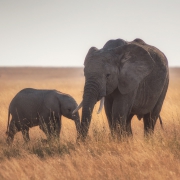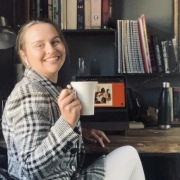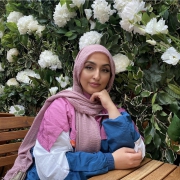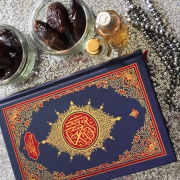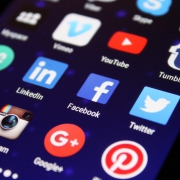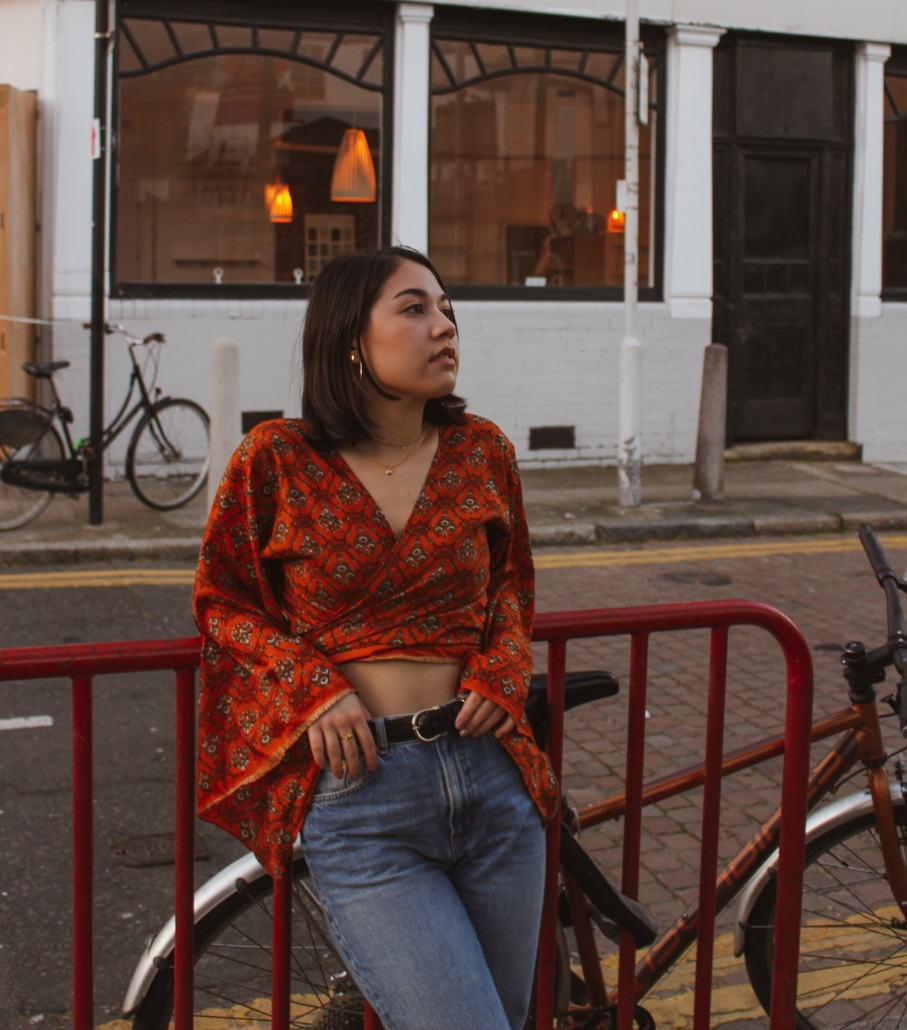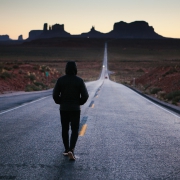I always admired the way my
parents would set their alarms to wake up for Sahour. The idea of waking up in
the middle of the night to eat as a family was very intriguing and unusual for
a seven-year-old as you could probably imagine. I used to desperately beg my
mum every single night so that she won’t forget about me. Just to hear the “Ker-Chunk!”
of our toaster and indulge into the buttered toasts with some chocolate spread
on top.
It was a period where
Ramadan fell on the winter months of the calendar, probably around late December
times when I first started fasting. The days were short so it was manageable.
We would usually break our fasts around 4pm and the last 15 minutes or so would
be the most dreadful but the most exciting minutes of our lives.
I always watched what was
placed on the dining table during sahour and iftar hours. For me, the star was
and is still to this date, the slightly chewy and succulent medjool dates.
Knowing that our Prophet Mohammed (PBUH) was a huge fan of dates and used to
break his fast with these special fruits is what makes the experience of
breaking my fast the same way, a rather sentimental and meaningful one.
I suppose as a child, what
appealed to me the most, were the unscheduled dining hours we would have during
Ramadan. It seemed to be very adventurous to wake up to something which wasn’t
the norm and did not take place in other people’s homes. An experience which I
could talk to my friends about. But today as a twenty-seven-year-old my intentions
and experiences have changed. Then as a child, I was looking forward to
exploring something new, today as an adult, I am looking forward to embracing
and bettering something I already have.
As years went by, my
relationship with food changed. I became more tolerant and developed a sense of
gratitude for everything I had and humbled myself for all the unnecessary
things I wanted. Ramadan gradually became a turning point in my life and a time
for self-reflection. It helped me change my eating habits to an extent where in
2019 I started my healthy eating journey.
To me the meaning of fasting
changes every single year without losing its original value. I try to add
something to my current understandings and practices, so that I could improve
myself during that time and set myself targets for the upcoming calendar.
Although today our
experiences may vary, what has stayed the same for me is, the fact that Ramadan
has always helped me cleanse the impurities of my body and mind and has
increased the empathy I’ve had for the less fortunate. Not only is fasting a
religious practice for me but it is also a commitment which has strengthened my
family bonds too.
I was very fortunate to
be given the opportunity to interview Niloufar Thawer who is a Retail Manager
at Paddington Central to discuss and explore her experiences during Ramadan
this year.
What are
your thoughts on the holy month of Ramadan and do you feel like it changes you?
“I think
Ramadan changes you as a person both mentally and physically. Firstly,
because you are cleansing your body; secondly, because you are getting closer
to God. For me the main one is getting closer to God not only because of the
month of Ramadan but because I started noticing other things about the holy
month too; like how people may feel if they’re not eating.”
Do you see a change
in the way Ramadan rituals are now practiced due to the pandemic?
“For sure. I’m an
Ismaili Muslim and I normally go to the South Kensington Mosque. We would
normally participate in the duties like saying the dua’as. It’s been a massive
change because the mosque was closed and we were unable to go. Therefore, there
is a big difference of practicing at home rather than going over there and
spending it. Additionally, when it comes to the iftar side you can no longer
spend it with family and that doesn’t help as you can’t do the things you were
once able to do. I think in some aspects we still went along with it and still
got on.”
Does your judgement
of refraining from bad habits change with Ramadan?
“Definitely. There’s
been a lot of mental health involved such as relaxing your mind and not
speaking out when it’s unnecessary. There’s also been a lot of patience that
comes with this too which is the major factor for everybody, either seeing
somebody eat or seeing somebody do something bad in front of you. You start to
refrain from letting it affect you.”
What were your goals
for Ramadan this year and have you achieved them?
“I’ve had quite a few
goals this year such as doing Ramadan for my father as he had a stroke. Unfortunately,
I couldn’t manage this due to my own health conditions. I was only able to fast
for a few days. I managed to do my prayers and felt happy to do what I can during
that time. In regards to my dad, at least I am still there and looking after
his care. My priority is to make sure that I continue with that. But in regards
to my goals not being able to fast for him was something I couldn’t achieve.
Maybe next year if I’m better I could participate again.”
What kept you
motivated during Ramadan?
“Personally, there are
quite a few factors such as doing self-care. I think that was quite vital. With
everything that I am going through, whether it be looking after my dad or the fact
that I’m leaving my job, I’ve had a lot of pressure and was extremely occupied.
Despite all of this, I feel like a peaceful and calm person even though I
wasn’t fasting the whole month.”
What did you find
challenging?
“In the first week, it
was very challenging as I needed water very badly. With the headache’s I was
getting from the meetings, people could just see that I was drained and I just
did not want to talk to anybody.”
How did you prepare
for suhoor this year?
“Normally what I do is
I opt for something that would stay in my stomach for a long time such as a
cereal with bananas, blueberries and raspberries. I try to add more fruit so it
gives me the energy I need. And then I’ll make a smoothie and eat some nuts as
well to keep me active. The only problem was sleeping straight after as the
food makes you energetic.”
What was your
favourite part of breaking your fast?
“Looking forward to
the food and the smells! Being an Asian woman, there were so many times when I
was cooking and was almost putting the spoon in my mouth until I realised oh no
I can’t do this. Also, listening to the Adhan during Magrhib made me feel very
accomplished.”
How did you manage
daily work schedule whilst fasting as a retail manager?
“As I was based at
home for that one week I was committed to my fasts, I didn’t have any issues
with work. It was only during the day if I had any headaches, I was laying down
more frequently. I wasn’t allowing stress at work to get to me and maintained a
good balance of continuing with my daily duties.”
What Ramadan
traditions do you have as a family?
“What we as Ismaili’s do is, we drink the holy water (Zam-Zam)
which we call it Niyaz in our culture when breaking our fast. Next we would
have a date straight after and then we would eat our main food. The whole
process symbolises how you are breaking that fast. After, we stuff our faces
with a big plateful of food.”
How are you planning
to celebrate Eid this year?
“I will be preparing kebabs,
samosas and biryani. Normally I would be going to the mosque for the Eid Namaz
but I guess this year we can’t do that. I am going to be working during the day
and later on in the evening, my uncles would be coming over to spend Eid with
us. I will be getting my Eidi so I am very happy about that.”
What is one advice
you give to yourself and others about Ramadan?
One thing I would
definitely say is, just because Ramadan is happening it doesn’t mean that you
should change the way you are only for a month. You should be the same all
throughout.”
Written by Ayse Kizilkaya

